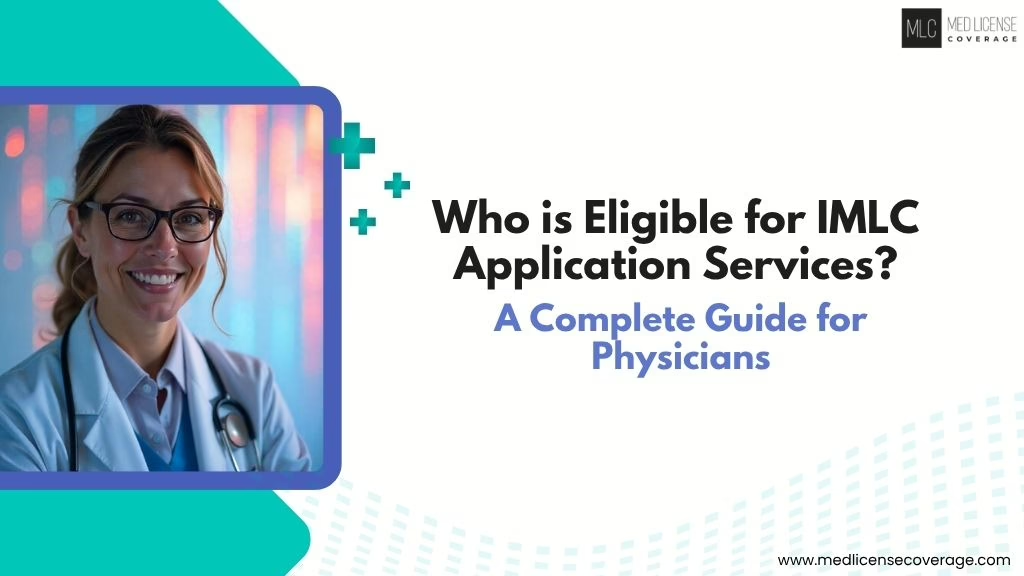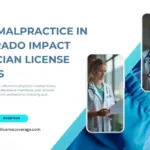IMLC Application Services simplifies the procedure for qualified physicians seeking multi-state licensure. The Interstate Medical Licensure Compact (IMLC) offers a structured pathway for physicians to practice in participating states. Qualification for these services depends on several core requirements, consisting of qualifications, license status, and history clearance. This guide explains the key factors to determine if a physician is eligible for IMLC Application Services.
Overview of IMLC Application Services
IMLC Application Services are designed to help physicians in obtaining fast-track licenses throughout multiple states with a single process. This initiative supports accessible healthcare by lowering delays in doctor flexibility. States that participate in the compact take advantage of regular standards and much easier access to physicians. These services support the physician from application to final authorization.
Advantages of IMLC Participation
- Faster processing of multi-state licenses
- The State of Principal License (SPL) provides a single-point confirmation.
- The practice flexibility has improved in underserved regions.
- The system ensures simplified compliance with several state boards.
- These advantages depend entirely on meeting IMLC eligibility standards.
Core Eligibility Requirements
To access IMLC Application services, physicians need to meet specific conditions. The Interstate Medical Licensure Compact has stringent regulations that verify professional status, background, and academic credentials. These are reviewed by the doctor’s State of Principal License (SPL).

1. State of Principal License (SPL)
Physicians should hold a full and unrestricted medical license in a state that takes part in the IMLC. This state should work as the doctor’s SPL. One of the following has to apply:
- Primary residence is in the SPL state.
- A minimum of 25% of the practice takes place in the SPL state.
- The employer is located in the SPL state.
- Reword for clarity.
- The licensing board confirms your SPL status before approving your application.
2. Medical Degree and Certification
A recognized medical degree is important. Medical education must be accredited by either the Liaison Board on Medical Education (LCME) or the Commission on Osteopathic University Certification (COCA). Foreign medical graduates must meet equivalent qualification standards.
The IMLC Application Services verifies qualifications versus recognized accreditation databases.
3. Postgraduate Training
Physicians have to complete a postgraduate clinical training program authorized by the Accreditation Council for Graduate Medical Education (ACGME) or the American Osteopathic Association (AOA). Postgraduate training consists of
- Fellowships.
- Residency programs.
A minimum of three years in such programs is needed.
4. Certification and Examination
Physicians applying via IMLC should have passed licensing exams such as
- USMLE.
- COMLEX-USA.
Passing these assessments without disciplinary actions is obligatory. Failed or incomplete exam attempts may disqualify an applicant.
5. Background Requirements
Eligibility also requires the lack of:
- Criminal background.
- Disciplinary actions on any active or expired license.
- Ongoing investigations.
- Restrictions on controlled substances.
A comprehensive background check is required. This includes fingerprint entry and verification with state and federal agencies. Clear background records are crucial for eligibility.
Medical licensing providers help ensure certain documentation and accurate documentation submission during these actions.
6. Active and Unrestricted License
Physicians must have an active license in good standing. Suspended, revoked, or limited licenses disqualify applicants. Reinstatement Physician License services might be needed before using if a license was previously inactive.
Any lapse in licensure needs to be addressed before the IMLC Application Services process begins.
7. Regulated Substance Enrollment
A legitimate and unlimited Drug Enforcement Administration (DEA) registration is needed. The physician has to likewise have actually controlled substance registration in the SPL state. Any type of restrictions or corrective actions related to controlled substances may bring about ineligibility.
8. Nationality and Residency
Candidates need to be people or lawful homeowners of the USA. Correct migration standing files are confirmed during the process.
These records consist of
- valid United States passport.
- Permanent Resident Card.
- Proof of legal standing in the U.S.
Medical Licensing Services assist in arranging and formatting these documents to meet IMLC standards.
When Is Reinstatement of a Medical Professional Permit Required?
In cases where a license has expired, been suspended, or been revoked, a Reinstatement of Medical License is essential before requesting IMLC services. The reinstatement process consists of:.
- Submission of previous records.
- Proof of continuing education.
- background check.
- Fee payment and required exams.
When reinstated, the license has to be validated as unrestricted and active.
State Involvement in the IMLC
Not all states take part in the compact. Qualification relies on the physician being accredited in a participating state. Both the SPL and added states where licensure is desired should be IMLC participants.
Checking the IMLC state eligibility map before beginning the application process is crucial.
Function of Medical Licensing Services
Medical Licensing Services sustain the complete procedure of IMLC eligibility and application. These services consist of
- Verifying SPL condition.
- Collecting documents.
- Filing background check documents.
- Tracking status updates.
- Managing communication with medical boards.
Professional assistance reduces delays, enhances application precision, and ensures smooth communication with regulatory bodies.
Common Disqualifications
Disqualification can result from numerous problems:
- Active disciplinary instances.
- Ongoing investigations.
- Non-active licenses.
- mismatched identity documents.
- incomplete postgraduate training.
Preventing such issues ensures better outcomes with IMLC Application Services.
Final Review and Licensing Timeline
When eligibility is confirmed and records are sent, processing may take a number of weeks. The board examines all sent materials prior to providing authorization. Licenses for added states are granted just after the SPL confirms eligibility.
Tracking tools may be readily available through licensing platforms for real-time updates.
Conclusion
Eligibility for IMLC Application Services depends upon stringent specialist and lawful certifications. From a certified education and learning to an active, unrestricted permit, each factor contributes to eligibility. Non-active or ended licenses require Reinstatement of Medical License services before using. Medical Licensing Services play a key role in streamlining the procedure and ensuring compliance. With complete and accurate documentation, qualifying physicians can access multi-state licensure efficiently.







